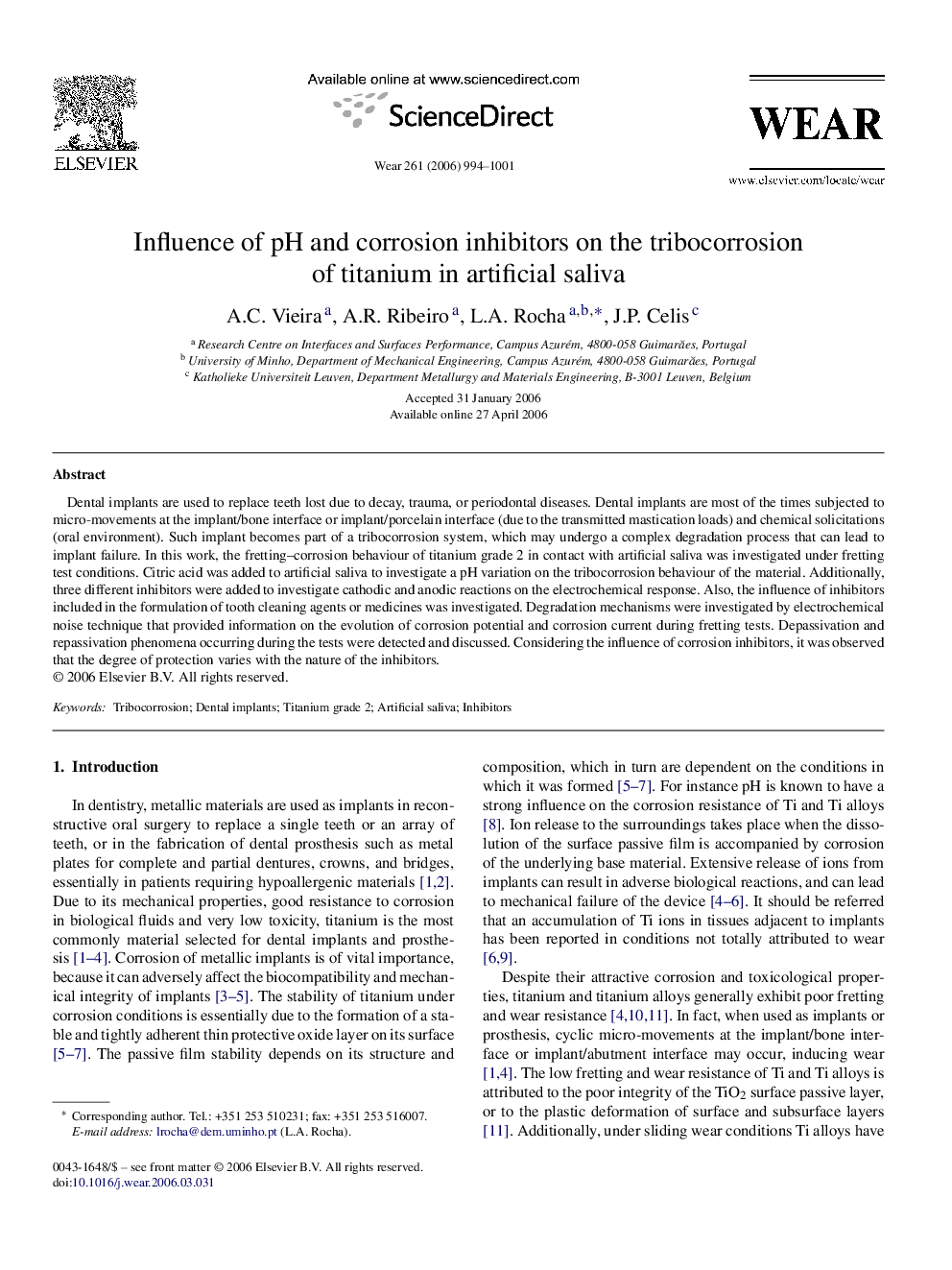| Article ID | Journal | Published Year | Pages | File Type |
|---|---|---|---|---|
| 620198 | Wear | 2006 | 8 Pages |
Dental implants are used to replace teeth lost due to decay, trauma, or periodontal diseases. Dental implants are most of the times subjected to micro-movements at the implant/bone interface or implant/porcelain interface (due to the transmitted mastication loads) and chemical solicitations (oral environment). Such implant becomes part of a tribocorrosion system, which may undergo a complex degradation process that can lead to implant failure. In this work, the fretting–corrosion behaviour of titanium grade 2 in contact with artificial saliva was investigated under fretting test conditions. Citric acid was added to artificial saliva to investigate a pH variation on the tribocorrosion behaviour of the material. Additionally, three different inhibitors were added to investigate cathodic and anodic reactions on the electrochemical response. Also, the influence of inhibitors included in the formulation of tooth cleaning agents or medicines was investigated. Degradation mechanisms were investigated by electrochemical noise technique that provided information on the evolution of corrosion potential and corrosion current during fretting tests. Depassivation and repassivation phenomena occurring during the tests were detected and discussed. Considering the influence of corrosion inhibitors, it was observed that the degree of protection varies with the nature of the inhibitors.
